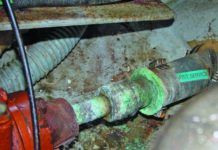Resale Value of Repowering
We own a 1975 Tartan 34C, still powered with the original Farymann R30 (V2) diesel engine. In its 28 years of service (all on the Great Lakes), the diesel has never had a mechanical problem, and has never failed to start (speaks highly for the quality of the product). I would estimate the engine has approximately 1,000 of operation (25-30 hours/year).
We are looking to do some extended cruising on the Great Lakes after I retire in a couple of years, but have some concern about the prospect of being hundreds of miles from home with a 30+ year old engine. Some say, “If it ain’t broke, don’t fix it,” and that’s what we may well do. However, we are also considering having the engine rebuilt (estimated cost $3-6K), or installing a new engine (estimated cost $9-10K).
My question is, what impact would these options have on the ultimate selling price of the boat? Is there a rule of thumb that says a new engine adds a certain percentage of its cost to the value of the boat in its first year, diminishing by a certain percentage each year thereafter? Does the fact that a 30+ year-old engine has been rebuilt add any resale value at all?
The thought here is that although the cost of repowering is high, we possibly could recoup some of that expense when it comes time to sell the boat-not to mention the greater peace of mind it would give us.
Any thoughts or comments would be greatly appreciated.
-Steve Hottinger
Via e-mail
We put this question to Dave Pugsley, head of the brokerage offices of the Brewer Yacht Yards here in New England. Here’s what he had to say:
“There’s no rule of thumb or percentage formula that can be applied to value a used boat with a new engine (although it would be nice to have such a formula). A new engine will certainly fetch more for the boat, but probably not enough more to make it worth repowering just for resale.
“In checking our online brokerage service, which lists actual selling prices of boats, we found a Tartan 34C, a 1974 model with a 1994 Universal 30 diesel, that sold for $21,000 in the Great Lakes in early 2002. I don’t know the hours on the engine, but clearly the sale price does not reflect a substantial value added because it had a newer diesel engine. These boats sell in the $19,000 to $28,000 range for 1974 and 1976 model years, regardless of the age of their engines.
“Repowering a boat as old as yours makes sense if you plan on keeping it for a long time yourself, or on using it for extensive cruising within a shorter time frame. In your situation, though, I would recommend against it, for two reasons. First, “if it ain’t broke, don’t fix it,” is pretty good advice when it comes to diesel engines. Second, 1,000 hours is a short time in the life of a diesel, and I wouldn’t expect there to be significant wear on the engine, as long as it has been maintained properly. It may be that replacement and upgrading of belts, hoses, hoseclamps, filters, and water pump impeller, as well as a check of your fuel tank and fuel lines, and a once-over by good mechanic, is all you really need to be confident in your Great Lakes cruising.”
We then put the same question to our diesel expert, Mike Muessel of Oldport Marine, In Newport, RI. His answer:
“Most of the problems we see with older diesels are directly related to saltwater corrosion. An engine that has lived its whole life in the Great Lakes should not have major corrosion problems of that sort.
“Mr. Hottinger should keep an eye out for spares like a starter and alternator and water pump kit.
“Oh well, there goes another engine sale….”


































